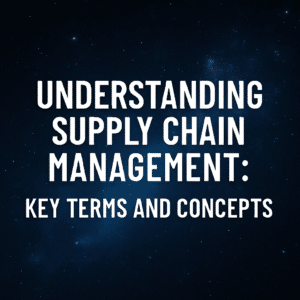In today’s globalized business environment, organizations often face the challenge of implementing standardized processes across diverse regions and departments. The question posed by Craig on LinkedIn captures a common dilemma: How can businesses reconcile the perceived uniqueness of local processes with the need for Process Standardization? This blog explores strategies for addressing this issue, focusing on effective communication, inclusive change management, and the art of balancing local adaptation with global consistency.
Table of Contents
ToggleUnderstanding the Core Issue
The Perception of Uniqueness
One of the primary challenges in global business transformation is the belief that each department, region, or country has unique needs that necessitate different processes. This perception can stem from cultural differences, varying business practices, or historical reasons. As a result, local teams may resist adopting standardized processes, believing that these practices do not adequately address their specific requirements.
The Need for Standardization
On the other hand, standardizing processes across an organization can drive efficiency, ensure consistency, and facilitate better data integration. A unified approach can also simplify training, reduce redundancy, and enhance overall operational effectiveness. Balancing these two perspectives—local uniqueness and global standardization—requires a nuanced approach.
The Role of Communication and Change Management
Effective Communication
Effective communication is crucial in managing the transition to standardized processes. It involves not only conveying the benefits of standardization but also listening to and addressing the concerns of local teams. Here’s how to approach this:
- Articulate the Benefits: Clearly communicate the advantages of standardization, such as improved efficiency, reduced costs, and better alignment with organizational goals. Highlight success stories and case studies where similar approaches have led to positive outcomes.
- Listen Actively: Engage with local teams to understand their concerns and specific needs. Acknowledge their perspectives and show empathy towards their unique challenges.
- Provide Transparency: Be transparent about the reasons behind the standardized processes and how they align with the overall business strategy. Transparency helps build trust and reduces resistance.
Inclusive Change Management
Change management plays a pivotal role in ensuring a smooth transition to standardized processes. An inclusive approach can help mitigate resistance and foster a sense of ownership among local teams.
- Involve Local Stakeholders: Include local representatives in the planning and implementation phases. Their involvement ensures that local insights and concerns are considered, leading to more practical and acceptable solutions.
- Facilitate Workshops and Training: Offer workshops and training sessions tailored to local teams to help them understand and adapt to the new processes. Hands-on training and interactive sessions can ease the transition and build confidence.
- Celebrate Small Wins: Recognize and celebrate successes along the way. Acknowledging the efforts of local teams and their contributions to the process can boost morale and reinforce positive change.
Balancing Local Adaptation with Global Consistency
Assessing Commonalities and Differences
To address the question of whether processes can be standardized despite local uniqueness, it’s important to assess both commonalities and differences. Here’s how to approach this:
- Identify Core Processes: Determine the core processes that are essential for achieving organizational goals. These processes should be standardized to ensure consistency and efficiency.
- Understand Local Variations: Analyze the local variations and understand why they exist. Are they driven by regulatory requirements, cultural practices, or historical reasons? This understanding will help in designing flexible solutions that accommodate local needs.
Designing Flexible Solutions
Rather than a one-size-fits-all approach, consider designing flexible solutions that allow for some degree of local adaptation while maintaining core standards. This can be achieved through:
- Modular Processes: Develop modular processes that can be adapted to different local requirements. For example, a core financial process can be standardized, but local tax regulations can be incorporated as modules.
- Configuration Options: Provide configuration options within standardized systems to address specific local needs. This allows local teams to customize certain aspects without deviating from the overall framework.
- Guidelines and Best Practices: Establish clear guidelines and best practices for adapting processes. This ensures that local adaptations align with global standards while addressing specific requirements.
The Importance of Empathy and Collaboration
Empathy in Implementation
Empathy is a crucial component of successful process implementation. It involves understanding and addressing the concerns and needs of local teams. By showing empathy, organizations can build stronger relationships and foster a collaborative environment.
- Acknowledge Local Expertise: Recognize the expertise and knowledge of local teams. Their insights can be valuable in identifying practical solutions and overcoming challenges.
- Address Resistance with Sensitivity: Handle resistance to change with sensitivity and respect. Understand the root causes of resistance and work collaboratively to address them.
Building a Collaborative Culture
Fostering a collaborative culture can enhance the success of process implementation. Collaboration involves working together towards common goals while respecting and valuing different perspectives.
- Encourage Cross-Functional Teams: Create cross-functional teams that include members from different regions and departments. This promotes collaboration and facilitates the sharing of best practices.
- Promote Open Dialogue: Encourage open dialogue and feedback throughout the implementation process. This helps in identifying potential issues early and allows for timely adjustments.
Measuring and Adjusting
Monitoring Progress
Monitoring the progress of process implementation is essential to ensure that the desired outcomes are achieved. It involves tracking performance metrics, gathering feedback, and making necessary adjustments.
- Define Key Performance Indicators (KPIs): Establish KPIs to measure the effectiveness of standardized processes. This includes metrics related to efficiency, compliance, and user satisfaction.
- Gather Feedback: Regularly collect feedback from local teams to assess their experiences and identify areas for improvement. Feedback can provide valuable insights into the effectiveness of the implemented processes.
Making Adjustments
Based on the monitoring and feedback, make necessary adjustments to improve the processes and address any issues. This iterative approach ensures that the processes remain relevant and effective.
- Refine Processes: Continuously refine processes based on feedback and performance data. This may involve making adjustments to accommodate local needs while maintaining core standards.
- Update Training and Support: Update training materials and support resources to reflect any changes in processes. Ensure that local teams have access to the latest information and guidance.
Conclusion: Process Standardization
Implementing standardized processes across diverse organizations and regions is a complex but achievable goal. By focusing on effective communication, inclusive change management, and balancing local adaptation with global consistency, organizations can navigate the challenges and achieve successful process implementation.
Understanding the unique needs of local teams while maintaining core standards is key to finding the right balance. Through empathy, collaboration, and a commitment to continuous improvement, businesses can drive efficiency, consistency, and overall success in their global operations.
In summary, addressing the question of how to manage the perceived uniqueness of local processes while implementing standardized practices involves a thoughtful and strategic approach. By engaging with local teams, designing flexible solutions, and continuously monitoring and adjusting, organizations can achieve their transformation goals and thrive in a globalized business environment. leveraging current assets more effectively and addressing fundamental issues. By prioritizing low-cost, high-value initiatives, organizations can drive significant improvements and set the stage for future growth and success.

How Can We Help with your Business Transformation
At Third Stage Consulting, we are passionate about empowering organizations to successfully navigate the complexities of digital transformation. Whether you’re embarking on a new transformation journey or aiming to optimize your current processes, our expert team is committed to providing comprehensive support throughout every phase. From initial strategy development to execution and beyond, we work closely with you to ensure that your transformation goals are met efficiently and effectively.





